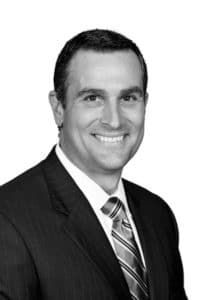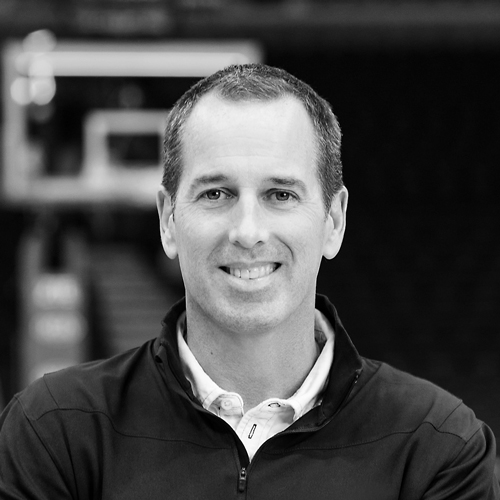
Even though Ryder System sold its consumer rental division nearly twenty years ago, many people still have a tendency to picture it as the company with the yellow trucks they can rent for the weekend. In fact, Ryder is one of the largest third-party transportation and logistics businesses in the US. Roughly 40 percent of the company’s growth has come from new outsourcing customers that have chosen to leverage Ryder’s experience and expertise, along with its more than fifty million square feet of warehouse space, eight thousand dedicated drivers, more than 240,000 vehicles, and more than eight hundred locations.
Tom Havens, senior vice president and global chief of operations, explains that there are several factors driving many companies to outsource their transportation and logistics needs. EPA emissions standards and advanced truck technology have made vehicle maintenance and repair more complex and expensive. That translates into additional training of existing staff and substantial investments in retooling and new diagnostics equipment. Other recent regulations also limit driver hours of service and demand that electronic logging devices replace manual paper logs. Additionally, the industry is facing an ongoing technician shortage.
“Ryder’s specialty is maintaining commercial vehicle equipment and managing dedicated logistics,” Havens says. “New regulations, new technologies, and manpower shortages are all pushing customers to look for outsourced solutions, which is exactly what we offer.”
“Prior to the 2007 emissions standards, the industry had gone many years without significant changes to diesel engine technology. When manufacturers were forced to re-engineer their products, it changed everything when it comes to maintenance, diagnosis, and service.”
But similar to other companies in the industry, Ryder isn’t immune to the same challenges that are spurring its growth. When the first changes to emission standards went into effect in 2007, Ryder developed a comprehensive retraining and retooling program, which included updated technology, protocols, and regulations change. “Prior to the 2007 emissions standards, the industry had gone many years without significant changes to diesel engine technology,” Havens says. “When manufacturers were forced to re-engineer their products, it changed everything when it comes to maintenance, diagnosis, and service.”
Because several of Ryder’s customer contracts are multiyear agreements, the company was able to phase in the new processes and practices. As older vehicles reached the end of their life spans, they were replaced by the newer technologies, which created blended fleets that gradually shifted toward newer vehicles and technologies.
Ryder is addressing the industry’s technician shortage through several different innovative programs. First is its technician trainee program. Students who may otherwise enroll in private training schools are identified and offered jobs so that they can be paid while they receive training from the company. Ryder also has award-winning programs targeted at transitioning active duty military personnel to the private sector.
Since 2011, the company has hired more than 5,800 veterans as both technicians and positions in a variety of other fields through the Hiring Our Heroes program. The Ryder Pathway Home program was created with the US Army for active duty soldiers who want to continue in technician jobs that they had already been pursuing while enlisted. The company sponsors twelve weeks of training prior to their discharge, and the government then relocates them to any city where they would like to begin working for Ryder.
“Our military programs have accounted for about a quarter of our new technicians—a figure I expect to continue to grow,” Havens says. “It feels great to be involved in something that addresses a strategic issue for our business and that supports our veterans at the same time.”
Ryder Pathway Home contracts with individual army bases. The company expects to expand from its current three contracts to six by the end of 2018. The combined training and recruitment efforts have added about nine hundred technicians over the past five years, bringing the company total to nearly six thousand.
Four years ago, to help address management staffing and succession issues, Ryder developed two key internal programs: the eighteen-month long Future Leaders program for existing employees, and operations manager training for new hires going into frontline positions. Both have enabled the company to keep up with its ongoing expansion while promoting and staffing open positions from within.
As the business has changed, so too have customers’ expectations. This prompted Ryder to unbundle the traditional full-service lease offerings that had been a mainstay of its business for eighty years. For example, instead of a single comprehensive package for leases that includes vehicle purchases, financing, and complete maintenance, a variety of more flexible alternatives are now available through the company’s Ryder ChoiceLease products.
Additionally, Ryder SelectCare offers options that split maintenance responsibilities between the company and its customers so that it has more flexibility to align services with objectives and business needs.
Adding to its standard multicustomer maintenance facility, Ryder can deliver maintenance in two distinct ways: the on-site product line staffs customers’ maintenance shops with Ryder managers and technicians, and mobile maintenance provides fully outfitted trucks that travel to customers to perform on-site and comprehensive service.
“Unbundling our offerings enables us to cater to customer preference with more choices that make it easier to do business with us,” Havens explains.
As successful as Ryder’s efforts have been at transitioning along with the industry’s evolution, Havens points out that the journey is never-ending.
“Even some customers with full-service leases still don’t know the breadth and depth of products and services that we offer,” he says. “It’s something our sales and marketing teams are always addressing. We like to look at it as a pool of potential new business from people who just aren’t yet aware of the full scope of what we can do for them.”
Photos: Ryder System, Inc.
Carrier Transicold congratulates Tom Havens, SVP and global chief of operations, and the Ryder team on this well-deserved recognition. Carrier Transicold values our long-standing partnership with Ryder, providing advanced, energy-efficient, and environmentally sustainable truck and trailer refrigeration systems that allow Ryder and their customers to deliver on their promises.

